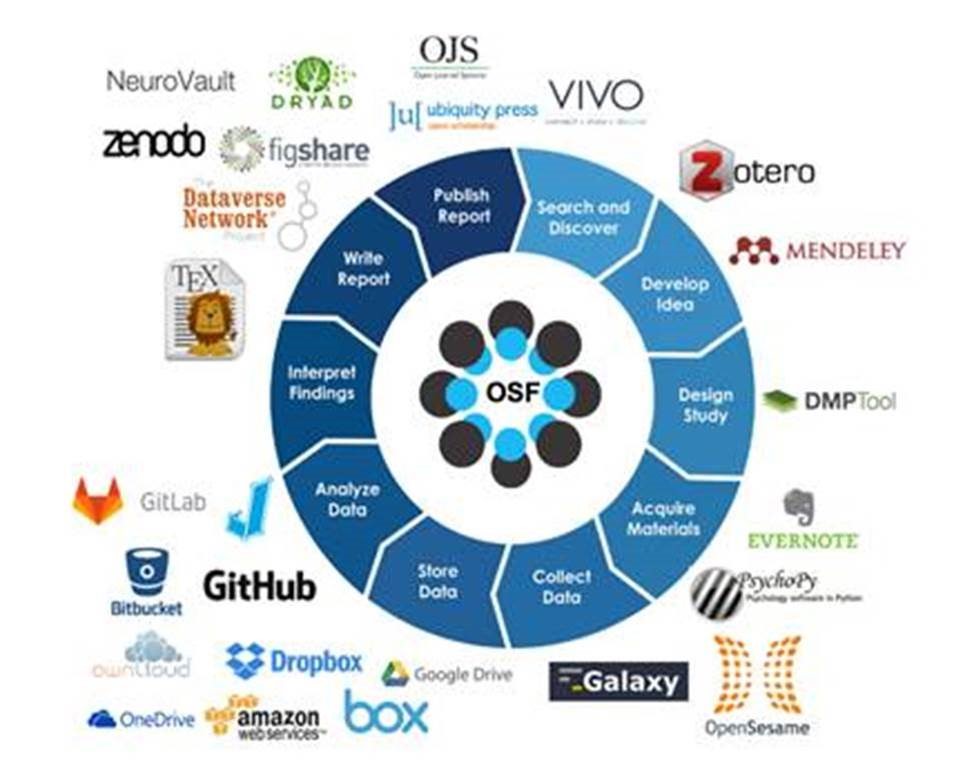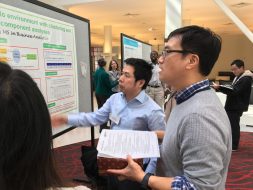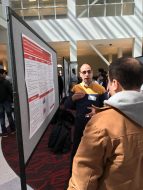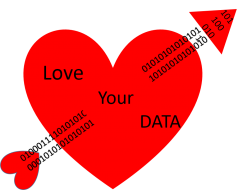If you missed the June 1st webinar about the Open Science Framework, the recording is now available.
Do you have any additional questions or need help getting started? Just email AskData@uc.edu.

If you missed the June 1st webinar about the Open Science Framework, the recording is now available.
Do you have any additional questions or need help getting started? Just email AskData@uc.edu.
The Researcher Services group, an initiative of UC Libraries with the IT@UC R&D Team, is pleased to announce a new tool for research projects: OSF for UC.
There is no cost to use OSF for UC. OSF, or the Open Science Framework, an open-source workflow tool appropriate for any discipline and developed by the Center for Open Science.
OSF for UC — osf.uc.edu — is UC’s portal for students, faculty, staff and others who need to manage project files and documents. Sign-in is easy – go to osf.uc.edu, sign in, choose University of Cincinnati, then your UC 6+2 Central Login.
Through OSF, project teams can assign collaborators (internal and external to UC) and share project documents at a granular level (only share what you want, with whom you want). Projects managed through the OSF are private by default. Any or all parts of a project can be made public as desired or required by grant funders or others. 


The major focus of UC Data Day is to build community around best practices for data and to provide a forum for discussion about challenges and opportunities in data management, data sharing, reproducible research and preservation.
At the first UC Data Day held in 2016, faculty panelists began the conversation and highlighted the diverse and broad approaches to these challenges. For the second UC Data Day, we wanted to include a student voice as well.
Today’s LYD post is by Amy Koshoffer, Science Informationist based at the Geology Math and Physics Library with editorial support from Dr. Eric J. Tepe, Assistant Professor of Biology and Curator of the Margaret H. Fulford Herbarium.
It has been sometime since I stepped over the threshold of my old lab in the Care/Crawley Building. Many changes occurred in the interim including a move to another floor  of the building. There are times I miss the bench research and the data I created in my time as a senior research assistant. One of my favorite techniques was microscopy and particularly Electron Microscopy (EM). I remember the multitude of samples processed, the long wait for samples to be ready to image and then finally all the amazing images we captured. Processing samples for EM imagining is a long and sometimes challenging technique. The samples need to be dehydrated and then infiltrated with a resin to stabilize the structures and prevent destruction from the electron beam during viewing. You might not know if a sample has been ideally preserved until you get to the imaging lab and begin to examine the sample. But what joy when the images look amazing with crisp detail and no water holes. So much work and resources went into the sample preservation and acquiring images.
of the building. There are times I miss the bench research and the data I created in my time as a senior research assistant. One of my favorite techniques was microscopy and particularly Electron Microscopy (EM). I remember the multitude of samples processed, the long wait for samples to be ready to image and then finally all the amazing images we captured. Processing samples for EM imagining is a long and sometimes challenging technique. The samples need to be dehydrated and then infiltrated with a resin to stabilize the structures and prevent destruction from the electron beam during viewing. You might not know if a sample has been ideally preserved until you get to the imaging lab and begin to examine the sample. But what joy when the images look amazing with crisp detail and no water holes. So much work and resources went into the sample preservation and acquiring images.
I wonder what will happen to that effort in the years and decades to come. Are there others who might want to use the physical samples and digital images in their own work? Did I do what was needed to make sure that someone could reuse all the data created? Continue reading
Today’s LYD post is by Don P. Jason III, MLIS, MS, Clinical Informationist based at the Donald C. Harrison Health Sciences Library.
Welcome to Day 4 of “Love Your Data Week!” Whether you’re a student analyzing a data set for a school project or a researcher combining data sets to create new insights, finding the right data is essential! This blog post will list a few places you can look to find free, authoritative and unique data sets. The data sets have be broken down into three categories: US Government Data Sets, International Data Sets and Google Data Sets.
US Government Data Sets
Data.gov http://data.gov – This web site has an eclectic mix of datasets from criminal justice to climate data. This government site encourages people to use the data to create web and mobile applications and design data visualizations.
US Census Bureau http://www.census.gov/data.html – This web site provides data on the US population and economy. Utilizing this site’s data has never been easier thanks to new: API’s, data visualizations, mobile apps and interactive web apps.
Healthdata.gov https://www.healthdata.gov/ – This web site includes US healthcare data. The site is dedicated to making high value health data more accessible to entrepreneurs, researchers and policy makers.
National Climatic Data Center http://www.ncdc.noaa.gov/data-access/quick-links#loc-clim – This is the world’s largest archive of weather data. It has a robust collection of environmental, meteorological and climate data sets from the US National Climatic Data Center.
Today’s Love Your Data Week’s post is by Tiffany Grant PhD, Interim Assistant Director for Research and Informatics at the Health Sciences Library (HSL) and Research Informationist.
Data, FAIR Data
If asked to define good data, the definitions would run the gamut, as the interpretation of the term will be specific to the types and formats of data typically collected by the individual. However, simply put, good data meets the standard of being of good quality, and data quality generally refers to the ability of data to serve the use it was intended. In short, data quality hinges on the reliability and application efficiency of data. The combination of good data quality and data documentation ensures accurate interpretation and reproducibility. Beyond documentation, a number of federal mandates dictate that data be shared beyond one’s own lab notebook, and in order to ensure proper interpretation and reproducibility of your data, it must be FAIR.

Today’s Love Your Data Week’s post is by Tiffany Grant PhD, Interim Assistant Director for Research and Informatics at the Health Sciences Library (HSL) and Research Informationist.
The Big 3 of Data
Documenting, describing and defining your data are the 3 most critical components of good data management and your data legacy. If done properly, documentation ensures accurate interpretation and reproducibility of your data. Additionally, it improves the integrity of the scholarly record by providing a more complete picture of how your research was conducted.
Data Things to Do
Big 3 Data Basics
Who: Who are the contributors?
What: What kind of data was collected and what analyses were done to generate the data?
Why: Why was the project started, i.e. what questions did you hope to answer?
Where: Where did you get your data (if you aren’t the creator)? What is the physical location of the data?
How: How was your data generated?
Message of the day
Good documentation tells people they can trust your data by enabling validation, replication, and reuse.
Today’s LYD post features the thoughts of Dylan Shields, the Graduate Assistant for the Chemistry-Biology Library and Chemistry Graduate Student in Anna Gudmundsdottir’s Lab.
Welcome back to another edition of Love Your Data Week!!
The first topic for this week is going to focus on DEFINING DATA QUALITY!
So what IS data quality? Well, first off it is important to note that data quality definitions and practices can differ quite vastly depending on the field of study. However, there are a few markers of data quality that can be broadly applicable to most research. These markers include: accuracy, consistency, completeness, and accessibility.
So what are these markers and why are they important?
 Drop the roses and the box of chocolate because Love Your Data week is almost here. All next week, the UC Libraries informationist team will be blogging loving tips about how to best care for your research data. The theme for 2017 is emphasizing data quality for researchers at any stage in their career and the daily topics are:
Drop the roses and the box of chocolate because Love Your Data week is almost here. All next week, the UC Libraries informationist team will be blogging loving tips about how to best care for your research data. The theme for 2017 is emphasizing data quality for researchers at any stage in their career and the daily topics are:
Feb 13th – Defining Data Quality
Feb 14th Documenting, Describing, Defining
Feb 15th Good Data Examples
Feb 16th – Finding the Right Data
Feb 17th – Rescuing Unloved Data
Follow the action or join in on Twitter using hashtags (#LYD17 #loveyourdata)
Other social media outlets will be Facebook, Instagram and Pinterest.
So much better for you and your data than a box of chocolate!
Questions and comments to AskData@uc.edu